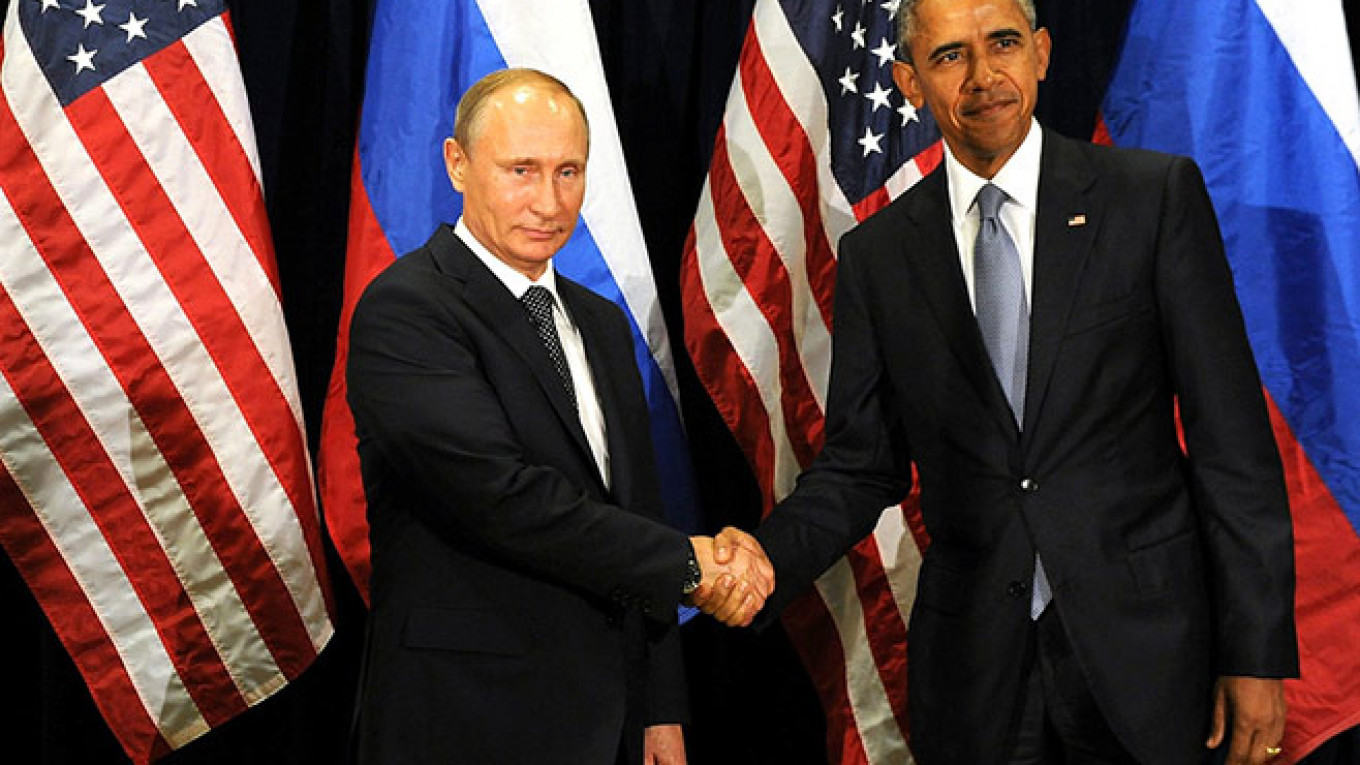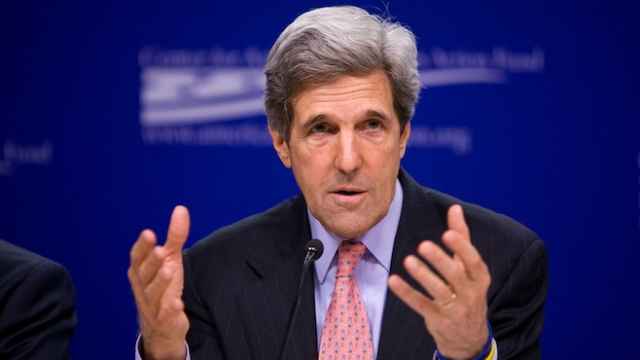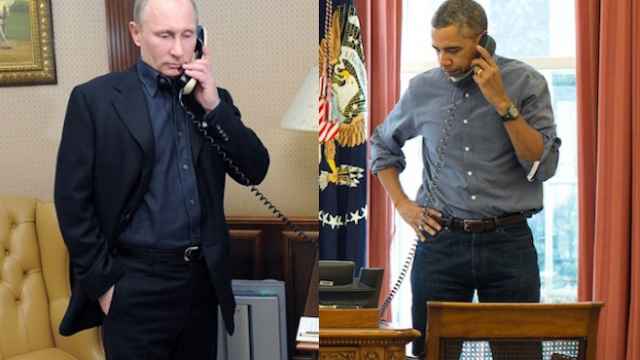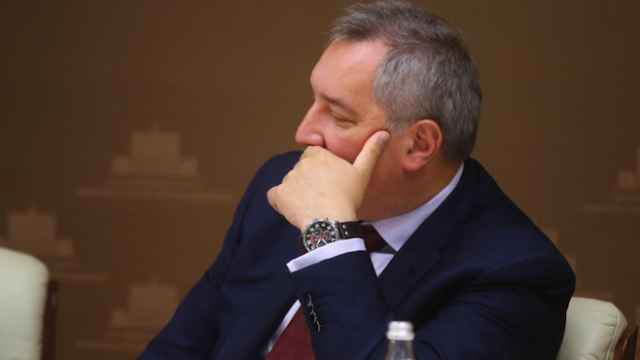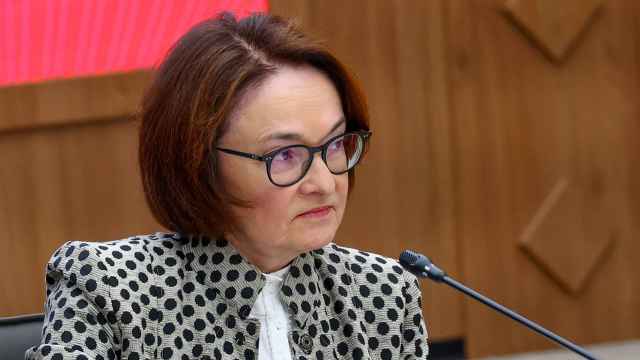Vladimir Putin wants to be seen as the peer of U.S. leaders and remains businesslike during top-level meetings, U.S. President Barack Obama said in an interview published in the April issue of U.S. magazine The Atlantic.
Despite the Kremlin's official rhetoric, Obama said Putin “understands that Russia’s overall position in the world is significantly diminished. And the fact that he invades Crimea or is trying to prop up [Syrian President Bashar] Assad doesn’t suddenly make him a player. You don’t see [Putin] in any of these meetings out here helping to shape the agenda. For that matter, there’s not a G20 meeting where the Russians set the agenda around any of the issues that are important,” Obama was quoted as saying by The Atlantic.
“He’s constantly interested in being seen as our peer and as working with us, because he’s not completely stupid,” Obama said.
After the annexation of Crimea from Ukraine in 2014, Kremlin officials, state television networks and loyalists cheered the move as a sign of Russia's might. But the impact of continuing Western sanctions on the Russian economy and living standards has caused domestic enthusiasm for the annexation to fade.
Russian air strikes in Syria, which began on Sept. 30, 2015, were lauded in Moscow as playing a leading role in the global fight against terrorism. But Western officials and analysts have accused Moscow of targeting Assad's political opponents to bolster the regime.
Since the annexation, Moscow officials and media have unleashed increasingly anti-Western and anti-U.S. rhetoric – some of it aimed personally against Obama – for domestic consumption. But Obama told The Atlantic that Putin makes an effort to be courteous in meetings with the U.S. president.
“The truth is, actually, Putin, in all of our meetings, is scrupulously polite, very frank,” Obama was quoted as saying. “Our meetings are very businesslike. He never keeps me waiting two hours like he does a bunch of these other folks.”
Putin has reportedly been late for meetings with Queen Elizabeth II, Pope Francis, senior U.S. and European officials, and kept former Ukrainian President Viktor Yanukovych waiting for four hours.
Yanukovych, a Moscow-backed president, was ousted from power by large-scale protests two years ago – an uprising prompted by Yanukovych's decision, under Russian pressure, to back out of a plan for closer European integration. Russian officials claimed that the crisis and protests were orchestrated by the United States.
But while Ukraine may have been a major factor in Moscow's policies, it was much less so in Washington's, Obama told The Atlantic.
“The fact is that Ukraine, which is a non-NATO country, is going to be vulnerable to military domination by Russia no matter what we do,” Obama was quoted as saying.
“Putin acted in Ukraine in response to a client state that was about to slip out of his grasp. And he improvised in a way to hang on to his control there,” he said. “He’s done the exact same thing in Syria, at enormous cost to the well-being of his own country.”
“Real power means you can get what you want without having to exert violence. Russia was much more powerful when Ukraine looked like an independent country but was a kleptocracy that he could pull the strings on,” Obama told The Atlantic.
A Message from The Moscow Times:
Dear readers,
We are facing unprecedented challenges. Russia's Prosecutor General's Office has designated The Moscow Times as an "undesirable" organization, criminalizing our work and putting our staff at risk of prosecution. This follows our earlier unjust labeling as a "foreign agent."
These actions are direct attempts to silence independent journalism in Russia. The authorities claim our work "discredits the decisions of the Russian leadership." We see things differently: we strive to provide accurate, unbiased reporting on Russia.
We, the journalists of The Moscow Times, refuse to be silenced. But to continue our work, we need your help.
Your support, no matter how small, makes a world of difference. If you can, please support us monthly starting from just $2. It's quick to set up, and every contribution makes a significant impact.
By supporting The Moscow Times, you're defending open, independent journalism in the face of repression. Thank you for standing with us.
Remind me later.


